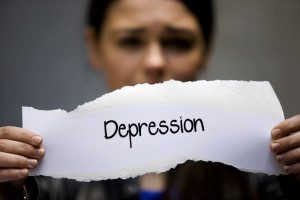Many of us have experienced sadness at certain points in our lives. If the condition persists, we may find ourselves wondering, “Do I have depression?” This condition is not always easy to diagnose because it manifests itself in different ways. However, medical experts provide guidance for identifying depressive symptoms. Being aware of this information helps us to identify depression in order to get early treatment.
Look for These Symptoms When Asking, “Do I Have Depression?”
Major depression is characterized by having at least five of seven specific symptoms during an episode that lasts longer than two weeks. Sleep alteration, decreased energy, reduced interest in activities, trouble concentrating, guilty feelings, changes in appetite, and suicidal thoughts are the symptoms to watch. Getting treatment for major depression in its early stages increases the chance of positive, lasting results.
Situational depression is characterized by the same symptoms but occurs after experiencing a significant life change and lasts for longer than two months. Retirement and grieving the loss of a loved one are two situations that can lead to situational depression. Symptoms tend to improve over time that follows the event so many therapists avoid prescribing medication to treat this condition.
Depression is associated with certain health issues including blood vessel and brain disorders. Heart surgery patients and people suffering heart attacks or strokes can develop vascular depression. In fact, a lesion in the left hemisphere of the brain, particularly in the left prefrontal cortex, may increase the risk of depression. Frequency and severity of depressive episodes tend to increase under these conditions. The first two years following a stroke seem to be associated with the highest risk of depression and risk peaks between the first three and six months after the stroke.
Take Action After Answering “Yes” to “Do I Have Depression?”
As soon as depression is suspected, it is time to take action. Getting a professional diagnosis and starting treatment during the early stages of this condition can prevent depressive episodes from becoming more frequent and more severe. There is no reason to suffer when effective methods of treatment are available.
A medical professional will determine the type of depression that exists and recommend relevant treatment. Explore both traditional approaches such as therapy and medication and alternatives including dietary changes, exercise, and chemical-free therapies.
Article content, © Kira Stein, MD, APC. | West Coast Life Center

